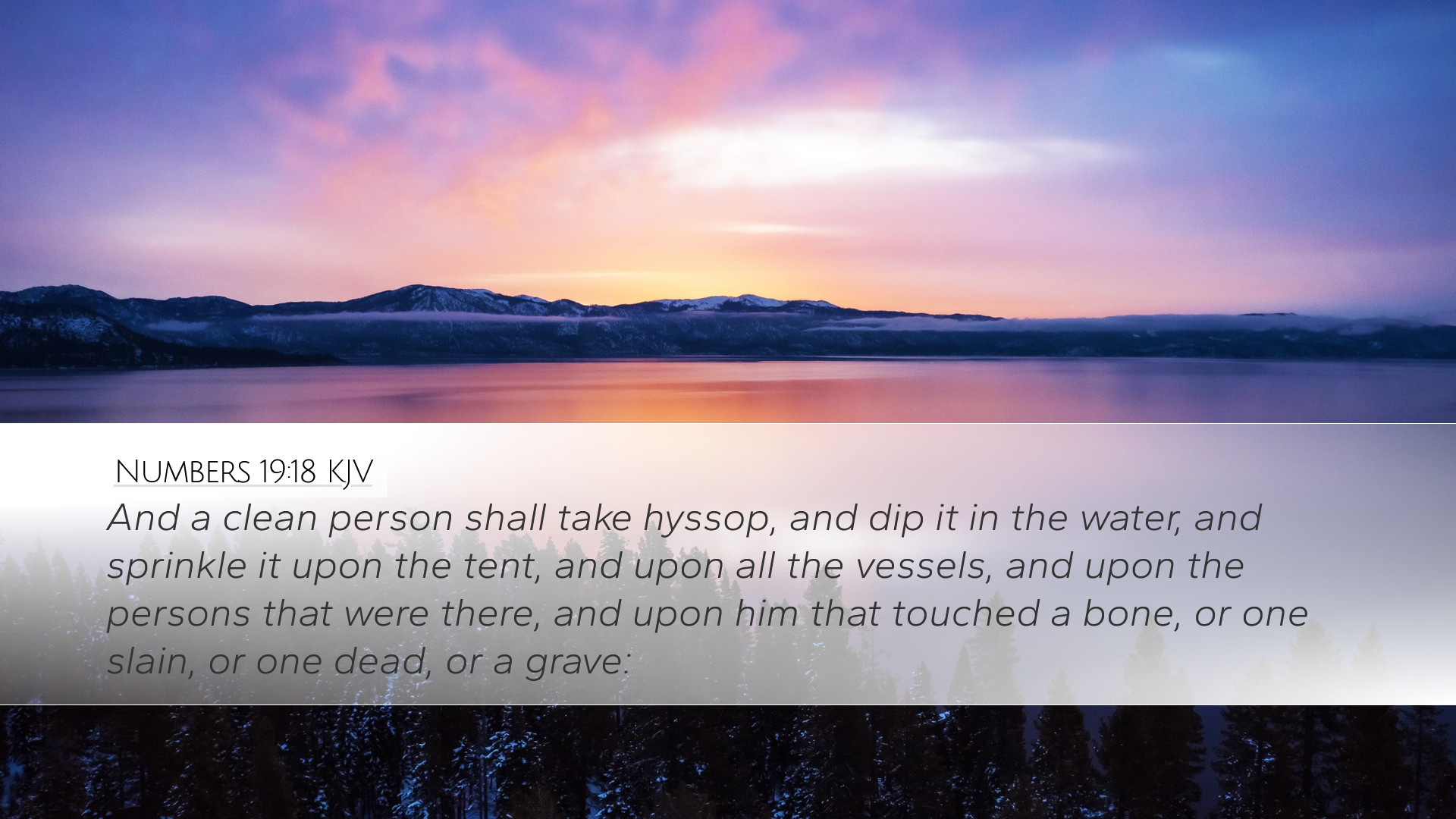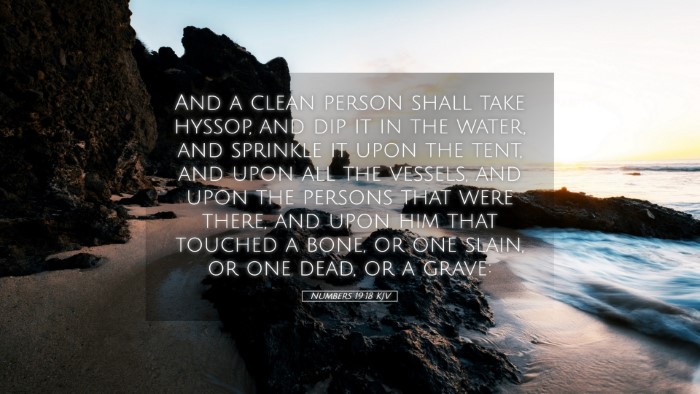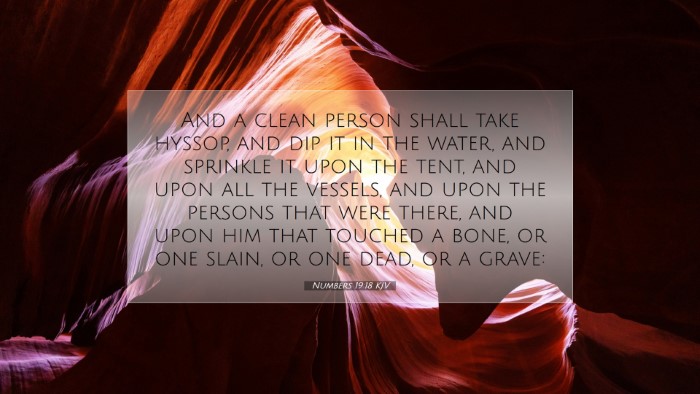Commentary on Numbers 19:18
Bible Verse: Numbers 19:18 - "And a clean person shall take hyssop, and dip it in the water, and sprinkle it upon the tent, and upon all the vessels, and upon the persons that were there, and upon him that touched a bone, or one slain, or one dead, or a grave."
Introduction
This verse is situated within the context of the law of purification regarding the dead. It reflects the holiness of God, the importance of ceremonial cleanliness, and the means by which the Israelites were to handle situations of impurity caused by contact with death. Scholars and theologians have devoted much attention to this text, discussing its implications for spiritual cleanliness, the symbol of hyssop, and foreshadowing in the New Testament.
Contextual Background
The book of Numbers presents the journey of the Israelite nation toward the Promised Land and the various laws given to guide their community. Numbers 19 discusses the ordinance of the red heifer, which was a unique purification ritual. This chapter introduces a ceremonial law designed to address the issue of ritual impurity caused by touching dead bodies.
Significance of Purification
According to Matthew Henry, purification laws show the seriousness of sin and the consequences of death. The Hebrews viewed death not merely as a physical reality but also as a spiritual impurity. The act of sprinkling purified water provided a way for individuals to be restored to a state of ceremonial cleanliness, which allowed them to continue in worship and community life.
Role of the Clean Person
In Numbers 19:18, it is noted that a "clean person" is to perform the cleansing ritual. Albert Barnes comments that this individual represents someone who has not been affected by the impurity of death; they stood in contrast to those who had become unclean. This distinction emphasizes the notion that purity in God’s presence requires an agent of cleanliness to mediate between what is unclean and the holy standards set by God.
Hyssop as a Symbol
The use of hyssop serves a profound symbolic purpose. Adam Clarke notes that hyssop was often associated with purification rituals and was considered a plant of lowly stature, serving as a reminder of humility before God’s holiness. Its use in both the Old Testament and in the Passover signifies a connection between redemption and purification, resonating with the ultimate sacrifice of Christ.
Theological Implications
Holiness and Impurity
The ritual described in this verse reflects the overarching biblical theme of God's holiness. Sin and death introduce impurity, which separates humanity from the divine. Matthew Henry asserts that the participants in these rites were reminded of mortality and the effects of sin. The process of cleansing points to the reality that humans need divine intervention to approach a holy God.
Foreshadowing Christ
Many theologians see Numbers 19:18 as a foreshadowing of New Testament themes. Just as hyssop was used for purification, so too does the New Testament speak of Christ as the one who purifies believers through His blood. The act of sprinkling with water symbolizes baptism—a cleansing that signifies the new birth and the believer’s acceptance before God.
The Importance of Community
The communal aspect of this ritual cannot be overlooked. It highlights the need for individuals to maintain purity not just for themselves but for the entire community. Albert Barnes points out that when one became impure, it had ramifications for their relationships and worship within the community of faith. The prescribed ritual underscores the collective responsibility of the Israelites to uphold holiness.
Practical Applications
For pastors, students, and theologians, the examination of Numbers 19:18 lends insight into how to live out holy lives in a world affected by sin and death:
- Understanding Sin: Recognize the ongoing battle against sin and its implications for our walk with God.
- The Role of Mediators: Acknowledge the significance of Christ as our mediator, who fulfills the requirements of the law and provides our purification.
- Community Responsibility: Embrace the call to hold one another accountable and encourage purity within the church community.
- Living in Holiness: Actively pursue holiness, utilizing the means of grace provided through Scripture, prayer, and worship.
Conclusion
Numbers 19:18 stands as a profound text within the Pentateuch, emphasizing the importance of purity, the role of the community in maintaining holiness, and the anticipation of Christ's ultimate sacrifice. As believers reflect on this passage, they are invited into a deeper understanding of their own need for cleansing and the grace offered through Jesus Christ. The rich symbolism found in the hyssop and the act of sprinkling water serve as reminders of our continuous need for spiritual renewal and the embrace of God's holiness in our daily lives.


